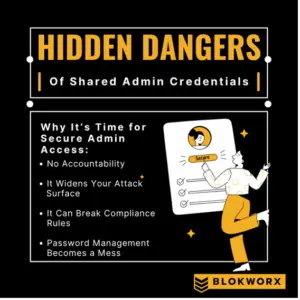 A fool and his identity are soon parted. Don’t be a fool, and don’t fall for Facebook or other scams. Facebook isn’t the only place you’ll find these, but the social media giant has ushered in a new wave of them. It’s aA wave of Tsunami-sized proportions; you almost can’t help tripping over them on the world’s most popular social media site.
A fool and his identity are soon parted. Don’t be a fool, and don’t fall for Facebook or other scams. Facebook isn’t the only place you’ll find these, but the social media giant has ushered in a new wave of them. It’s aA wave of Tsunami-sized proportions; you almost can’t help tripping over them on the world’s most popular social media site.
What Is It And How Does It Work?
The scam begins as most scams do, with an offer that sounds like it’s too good to be true, but it’s on Facebook, right? So of course it’s legit. Except that it isn’t.
You’ll see something like, “Win a $200 Gift Card in Three Easy Steps!” The store that the gift card is for may vary, but the scam always follows the same basic steps. Step one, of course, is to share the ad on your wall. Step two is to add some comments enticing the members of your social network to participate with you. Step three is to “like” the ad. Once you’ve done those three things, you’ll be told to click a link to go claim your gift card.
The only problem? When you click the link, there’s no gift card. Instead, you’re asked to complete a short survey. Usually this is done under the guise of a security measure to prove you’re not a robot. The questions are usually inane, not well thought out, and it always ends the same way. Sooner or later you’re going to be asked for your personal information. If you do enter it, it will be sold to the highest bidder on the black market and you can expect one or more credit cards opened in your name in short order. If you actually give them your credit card or bank account numbers, you can expect your credit cards to be maxed out shortly, and your bank account emptied. Of course, on top of all that to add insult to injury, you never even get the gift card.
Most of these offers come from PPA (Pay Per Action) sites. The way those offers work is that the scammers get paid for each person who takes a specific action, such as completing a survey or entering in their personal information. In short, they get you three ways. They promise something they never deliver, when you enter your information in good faith thinking that you’ll get the prize at the end, they sell that information to the highest bidder, and they get paid for convincing you to jump through the hoops. Worst of all you’re helping them, because of course, you shared and liked the ad, thus exposing your entire social network to it.
These scams are not new. PPA offers have been around for almost as long as the internet has, but they’ve found new life in the bustling halls of Facebook with its hundreds of millions of users. They only need a fraction of 1% of Facebook’s users to fall for it to make an absolute killing, which of course is why they’re there in the first place.
They know that even if only one half of one percent of the people who see the ad wind up jumping through their hoops, they still stand to make millions. These scams are simple to spot, don’t help the thieves – because that is what they are – by falling for them.



